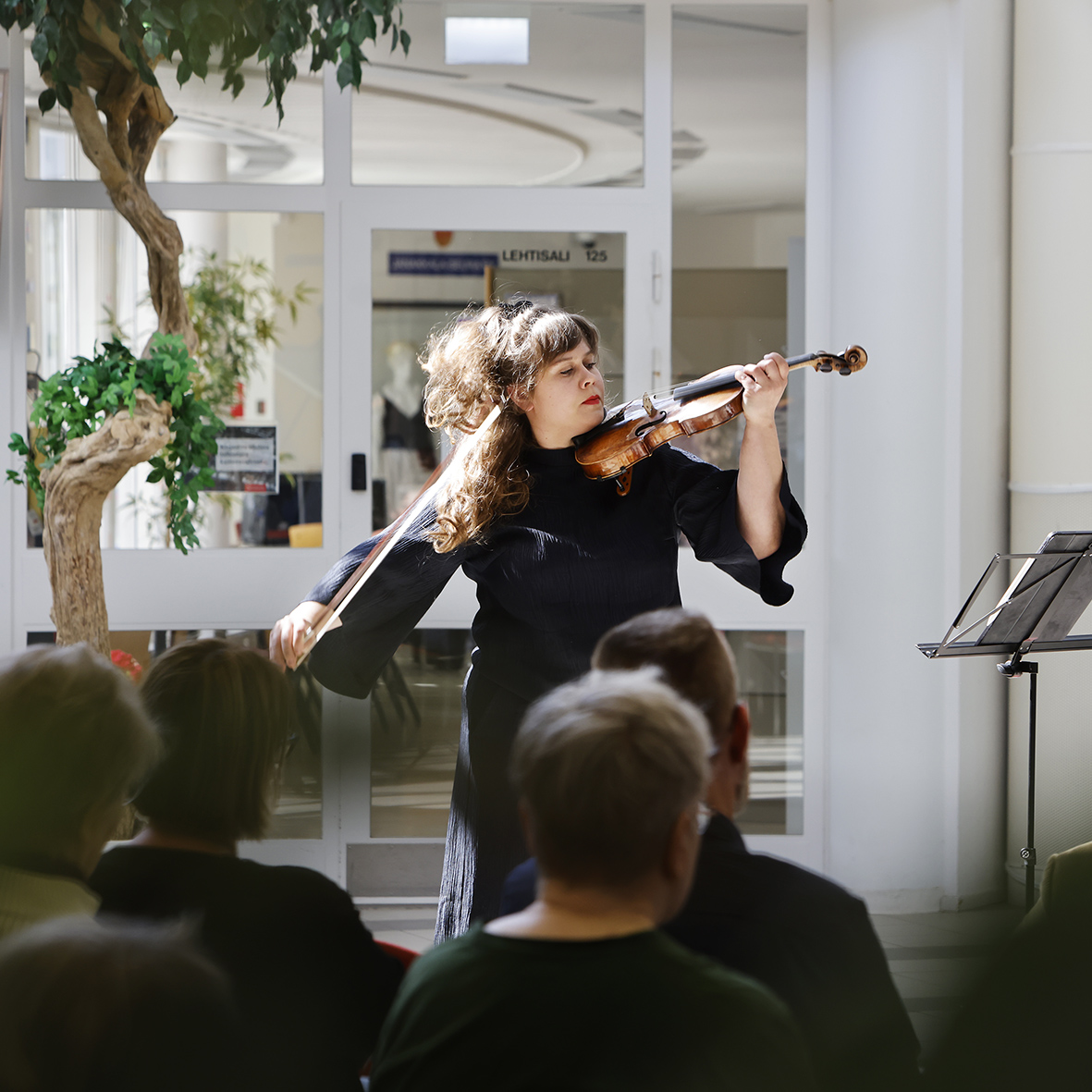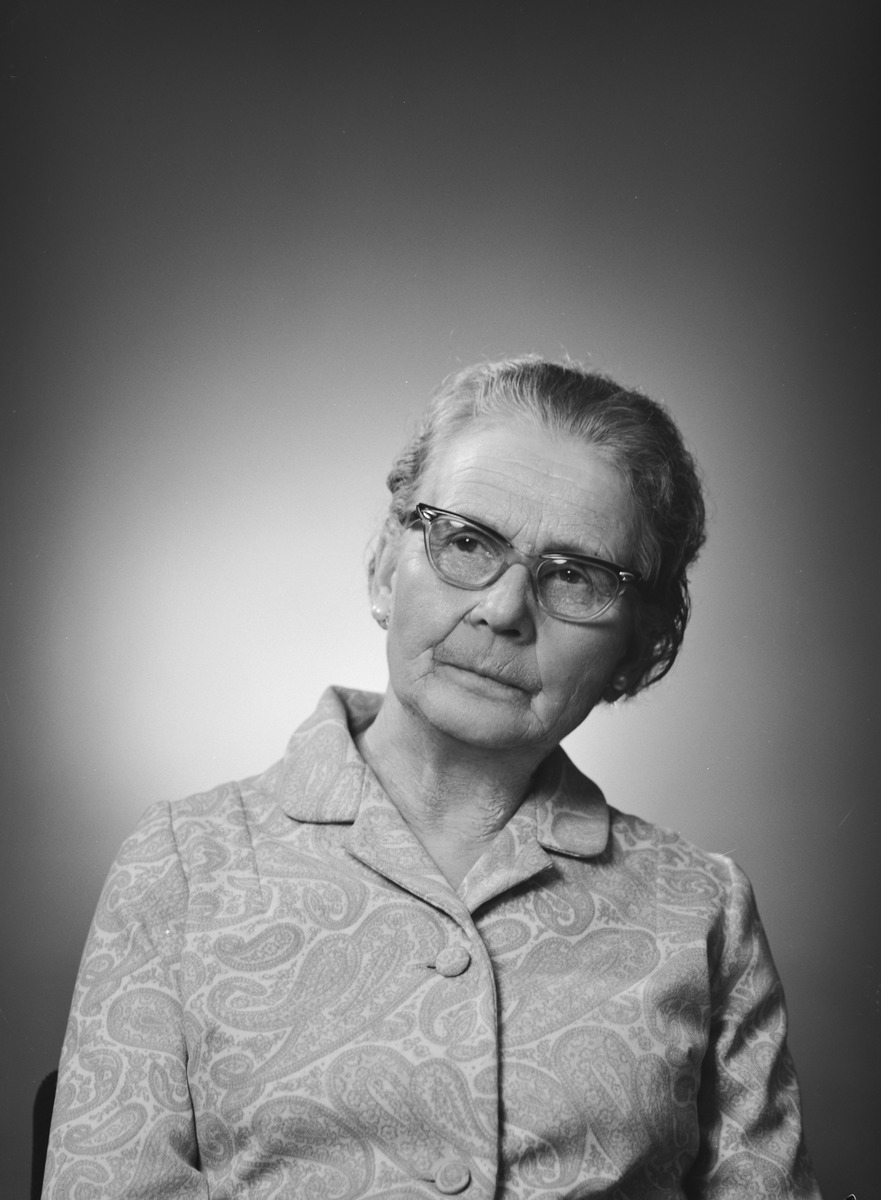This year, 2025, marks the 150th anniversary of Maurice Ravel's birth as well as the centenary of Pierre Boulez. Both have been extensively programmed, including in Finland. In addition, it is now 50 years since the birth of Finnish operatic realism in form of the internationally acclaimed operas of Aulis Sallinen and Joonas Kokkonen, both celebrated on Finnish opera stages this year. And not to forget the ever-overbearing national icon Jean Sibelius, born 160 years ago and once again commemorated in various events.
However, 2025 is also the 150th anniversary of a remarkable contemporary of Sibelius, Erkki Melartin, but he is all but invisible in concert programmes in the capital.
“The Ravel anniversary got a lot of attention in summer festivals this year,” notes violinist Linda Suolahti. “I have suggested Melartin, who has two wonderful violin sonatas, for instance, but everyone wants to play Ravel now they have a rightful cause for it – though they play him constantly anyway.”
Suolahti, head of the Kokonainen/Musequal Festival, which celebrates historical composers who have been unduly left in shadows, points out that anniversary celebrations are not self-evident but matters of choice.
“Samuel Coleridge-Taylor, for example, was also born 150 years ago and there is no shortage of repertoire, including a great violin concerto, but he is nowhere to be heard,” she says.
Anniversary events can be exploited in opening up new perspectives and challenging the status quo, but often they work the other way round, solidifying the conventional.
“An anniversary is an easy reason to choose a work, but there should always be more thought put into the repertoire choices,” Suolahti says.

Meeting points of memory and future
For cultural institutions, anniversaries are not-to-be-missed occasions to showcase their mission. This has traditionally meant thinking back in form of reminiscences and history publications, but today juxtaposing the old and new is more common, and indeed meaningful. In Finnish musical circles, commissions are a typical way to mark a special occasion, be it a choir, a pedagogical establishment or a society of some kind.
Jari Eskola, a former director of the Kuopio Symphony Orchestra and concert hall who has just taken over as general manager of the Helsinki Philharmonic Orchestra, considers commissioning a vital part of anniversary festivities. The city of Kuopio celebrates its 250th birthday this year, and when the planning started, Eskola seized the moment to commission five new works for its orchestra, an unprecedented number for a regional institution.
According to him, the special uplift of anniversaries should primarily be used to create something new, with retrospective reflections as an added value.
These two directions were manifested in the festivities for the 70-year-old Kaija Saariaho in October 2022, rallying a multitude of establishments and representatives of the freelance scene to celebrate together across Finland. Alongside retrospective insights into the composer’s career were the voices of young composers, and the passing of knowledge between generations was a recurring theme. As Saariaho passed away in June 2023, the anniversary festival gained even more importance in marking the legacy of a unique creative voice.
.jpg)
Opportunities for refreshing practices
The Finnish Broadcasting Company Yle turns 100 in 2026, an occasion to look back to the history of Finnish media and get nostalgic, too. The company’s orchestra, the Finnish Radio Symphony Orchestra, starts the party in early 2026 with a time-travelling programme into the year 1926. The season naturally includes a great number of commissions, too, as championing contemporary Finnish music is key to the orchestra’s mission.
But 2026 is a big year for Finnish jazz, too. Jazz music made its way to Finland during the 1920s, an important event taking place in the summer of 1926 when jazz landed in Finland with the Finnish-American musicians abroad the RMS Andania. Rather than clustering special celebrations around this specific date, centenary events are spreading throughout the year, and the country as well.
“This is a remarkable anniversary and offers enormous potential for the visibility of jazz music and reaching new audiences,” says Communications and Production Coordinator Valtteri Pokela from the Finnish Jazz Federation. “There is new research coming up on the history of Finnish jazz, but the idea is also to look ahead at what the next hundred years are going to look like.”
The Federation is not only leading the centenary campaign, but also responsible for two major projects next year: a jam tour with a house band combining students and professionals, and a concert series for young audiences. The next generation is the key word for both occasions, and the theme of the centenary is indeed ‘the Future’.
The centenary projects organised by the Finnish Jazz Federation are not so much a once-in-a-lifetime celebration, but initiatives meant to last. This is vital for a scene operating on a freelance basis, without stable funding.
“These themes don’t die away after the centenary, rather we are making use of the anniversary to pilot new practices,” explains Pokela.
.jpg)
Cooperation is key
Some ten years ago, Finland saw two exceptional clusters of national culture when the 150th anniversary of Sibelius and the centenary of independent Finland were celebrated in 2015 and 2017, respectively. On both occasions, a massive saturation of events could be witnessed during late autumn and winter, as both the birthdays of Sibelius and the state of Finland are in December, with many projects overlapping and overshadowing other cultural endeavours.
This is a major challenge for large-scale anniversary events and puts the cooperative abilities of the field to the test. Having experienced the scene from various perspectives, Eskola points to openness and teamwork.
“It requires a big anniversary for a general committee of some kind to be established to oversee the coordination. But with a wide-ranging collaboration and sharing of plans, there are more possibilities for synergies. Thus, an anniversary can be more than just a sum of its parts.”
More generally, Eskola sees anniversaries as a concrete tool to reach out. This is an everyday practice for music publishers, such as Fennica Gehrman, where he previously worked as publishing manager.
“Composers’ birthdays are a way for publishers to poke around in the performing field,” he explains. He remembers contacting orchestras in a rather sly way regarding the centenary of Finnish composer Einar Englund in 2016. “I put it in the form of, if you are planning some Englund for this big year, let us know so we can make sure that all the orchestral materials are up-to-date. This made the orchestras jump and include some Englund on their programmes.”
What is outside the limelight
As a freelance musician and director of a self-funded festival, Suolahti is well acquainted with the harsh competition for attention and exposure. Anniversaries, especially nice-looking round numbers, are often an attempt to get recognition in ever-faster news feeds where content itself is no longer enough. But musicians and institutions should be aware of the motivations behind their picks, she points out. Celebrations are preceded by active choices.
“What is the reason for something to get recognised? Often the composer or musician who is getting attention already has it, and people are hoping, often unconsciously, that their projects will benefit from that visibility in attracting audiences.”
Thus, recognition is spiralled around the same names time and again, be they living or dead, and their fame is reinforced as self-evident.
“This is why the Kokonainen festival was founded, to show that there are more than just the household names of canonical composers. When I was in high school, the shop next to our school featured Mozart umbrellas for his 250thanniversary. What if in 30 years, marking the 250th anniversary of Clara Schumann, we would have umbrellas with her face everywhere?”

Breaking the repetition
The big names deserve their birthdays too, but they should be marked with something very special, argues Suolahti – like a marathon concert of Beethoven symphonies. More often than not, composers’ anniversaries, like Ravel’s or Boulez’s, result in repeating the same concepts across the music scene.
“Suddenly all of Europe is playing the same music, and it is even more difficult to get through with something else,” she observes.
This also affects how classical music is perceived from the outside.
“If we always celebrate the same names, our potential new audiences only see a fraction of our composers and musicians,” Suolahti says.
During the Sibelius year of 2015, the Kokonainen festival challenged the narrative by celebrating Helvi Leiviskä, a remarkable symphonist and the first Finnish woman to have a professional composing career, alongside Sibelius. And in 2022, the festival organised a two-day celebration for the 120th anniversary of Leiviskä, including lectures, panel discussions and performances of all her major chamber works.
Recently Suolahti has been working on the previously unrecorded Melartin Violin Sonata no 1 (1899), and preparing to record it, so she decided to organise a Melartin 150th anniversary concert last spring.
“Of course I do it, too – programming something to coincide with an anniversary, but there should always be other reasons behind the choices. The music should always come first,” she says.
Featured photo of composer Erkki Melartin. Photographer unknown. Sibelius Museum Archives (SmF1466).
